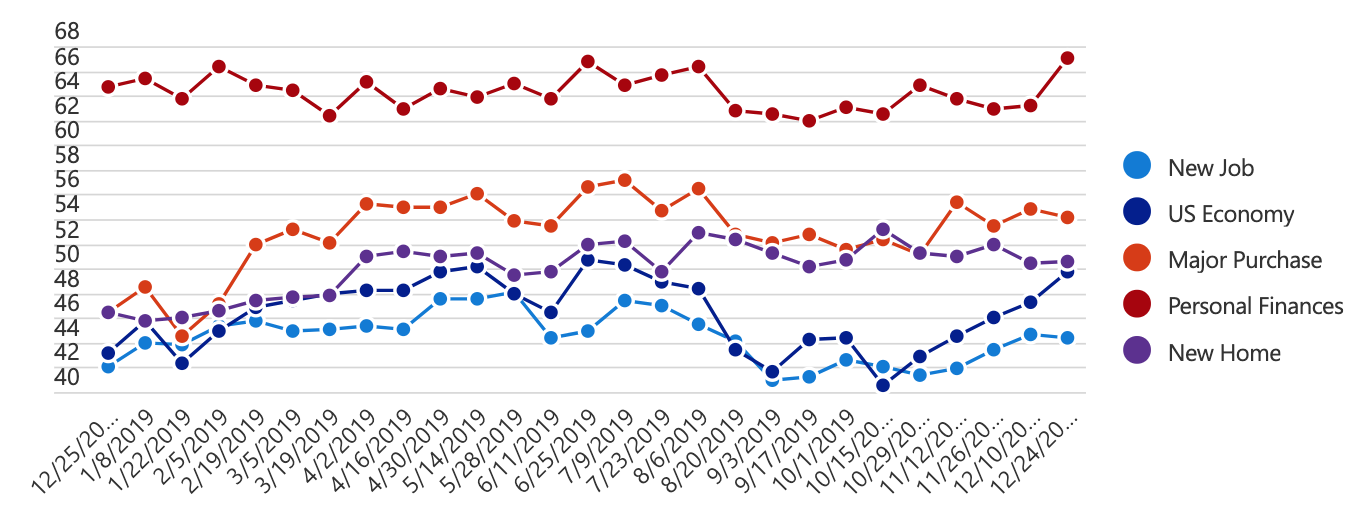The Microsoft-CivicScience Economic Sentiment Index powered by HPS (“ESI”) is a “living” index that measures U.S. adults’ expectations for the economy going forward, as well as their feelings about current conditions for major purchases. The primary goal of the Index is to accurately measure movements in overall national economic sentiment and to provide a more sophisticated alternative to existing economic sentiment indices. Unlike other prominent indices that release consumer sentiment estimates infrequently, the Microsoft-CivicScience Index is updated in real-time as responses are collected continuously every hour, every day. Large-scale cross-tabulation of survey responses and consumer attributes enable more granular analyses than are currently possible through prevailing measures.
Latest ESI Reading
For the fifth reading in a row, consumer confidence continued to increase, according to the Microsoft News-CivicScience Economic Sentiment Index (ESI). Confidence accelerated its climb, rising by 1.1 points to finish out 2019 at 53.2 The reading was driven by a 3.9-point increase in consumers’ confidence in personal finance as consumers feel more financially secure heading into 2020.









